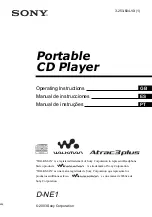
AT-S63 Management Software Features Guide
Section V: Spanning Tree Protocols
261
Summary of Guidelines
Careful planning is essential for the successful implementation of MSTP.
This section reviews all the rules and guidelines mentioned in earlier
sections, and contains a few new ones:
The AT-9400 Switch can support up to 16 spanning tree instances,
including the CIST, at a time.
A MSTI can contain any number of VLANs.
A VLAN can belong to only one MSTI at a time.
An MSTI ID can be from 1 to 15.
The CIST ID is 0. You cannot change this value.
A switch port can belong to more than one spanning tree instance at a
time. This allows you to assign a port as an untagged and tagged
member of VLANs that belong to different MSTIs. What makes this
possible is a port’s ability to be in different MSTP states for different
MSTIs simultaneously. For example, a port can be in the MSTP
blocking state for one MSTI and the forwarding state for another
spanning tree instance.
A router or Layer 3 network device is required to forward traffic
between VLANs.
A network can contain any number of regions and a region can contain
any number of AT-9400 Switches.
The AT-9400 Switch can belong to only one region at a time.
A region can contain any number of VLANs.
All of the bridges in a region must have the same configuration name,
revision level, VLANs, and VLAN to MSTI associations.
An MSTI cannot span multiple regions.
Each MSTI must have a regional root for locating loops in the instance.
MSTIs can share the same regional root or have different roots. A
regional root is determined by the MSTI priority value and a bridge’s
MAC address.
The regional root of a MSTI must be in the same region as the MSTI.
The CIST must have a regional root for communicating with other
regions and single-instance spanning trees.
MSTP is compatible with STP and RSTP.
A port transmits CIST information even when it is associated with
another MSTI ID. However, in determining network loops, MSTI takes
precedence over CIST. (This is explained more in “Associating VLANs
to MSTIs” on page 263.
Summary of Contents for AT-S63
Page 14: ...Figures 14 ...
Page 18: ...Tables 18 ...
Page 28: ...28 Section I Basic Operations ...
Page 58: ...Chapter 1 Overview 58 ...
Page 76: ...Chapter 2 AT 9400Ts Stacks 76 Section I Basic Operations ...
Page 96: ...Chapter 5 MAC Address Table 96 Section I Basic Operations ...
Page 114: ...Chapter 8 Port Mirror 114 Section I Basic Operations ...
Page 116: ...116 Section II Advanced Operations ...
Page 146: ...Chapter 12 Access Control Lists 146 Section II Advanced Operations ...
Page 176: ...Chapter 14 Quality of Service 176 Section II Advanced Operations ...
Page 196: ...196 Section III Snooping Protocols ...
Page 204: ...Chapter 18 Multicast Listener Discovery Snooping 204 Section III Snooping Protocols ...
Page 216: ...Chapter 20 Ethernet Protection Switching Ring Snooping 216 Section III Snooping Protocols ...
Page 218: ...218 Section IV SNMPv3 ...
Page 234: ...234 Section V Spanning Tree Protocols ...
Page 268: ...268 Section VI Virtual LANs ...
Page 306: ...Chapter 27 Protected Ports VLANs 306 Section VI Virtual LANs ...
Page 320: ...320 Section VII Internet Protocol Routing ...
Page 360: ...Chapter 30 BOOTP Relay Agent 360 Section VII Routing ...
Page 370: ...Chapter 31 Virtual Router Redundancy Protocol 370 Section VII Routing ...
Page 372: ...372 Section VIII Port Security ...
Page 402: ...Chapter 33 802 1x Port based Network Access Control 402 Section VIII Port Security ...
Page 404: ...404 Section IX Management Security ...
Page 436: ...Chapter 36 PKI Certificates and SSL 436 Section IX Management Security ...
Page 454: ...Chapter 38 TACACS and RADIUS Protocols 454 Section IX Management Security ...
Page 462: ...Chapter 39 Management Access Control List 462 Section IX Management Security ...
Page 532: ...Appendix D MIB Objects 532 ...
















































